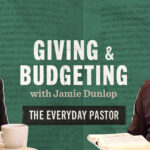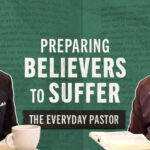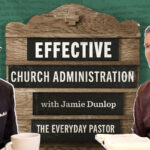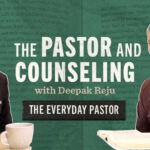The following 20 quotes caught my attention as I read Jen Wilkin’s new book, None Like Him: 10 Ways God Is Different Than Us (Crossway, 2016) [excerpt | review]. Thanks to Tony Reinke for inspiring the 20 quotes idea.
“We are line-crossers, boundary-breakers, fence-jumpers, carrying inside us a warped belief that our heavenly parent wants to withhold from us something that is needful or pleasurable. Even as we enjoy his good gifts, we feel a hyperawareness of the boundaries he has set, and we question their validity. Though he gives us nineteen gifts and warns us away from one danger, we suspect that what is withheld is not dangerous but desirable.” (22)
“We must recover the truth that was obscured by the Serpent: rather than being like God in his unlimited divinity, we are to be like God in our limited humanity. . . . Image-bearing means becoming fully human, not becoming divine. It means reflecting as a limited being the perfections of a limitless God.” (25)
“No doubt we will spend eternity enjoying an ever-increasing revelation of the things we do not yet know about God. Because he is infinitely good, the things that we do not know about God are only good things. . . . The secret attributes of God, should we come to learn them, would bring us nothing but pleasure and assurance. The infinite unknown of God holds no faith-shattering duplicity, just a multiplicity of perfections waiting to be discovered across eternity.” (34, 35) 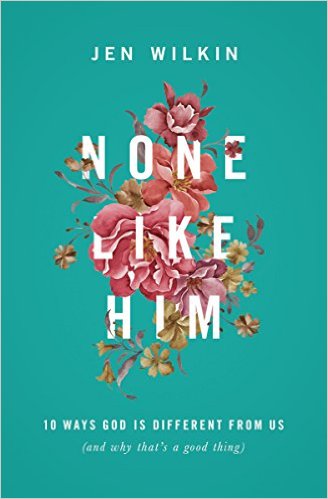
“We often read Psalm 139 to bolster our self-esteem. But when Psalm 139 reflects that humans are fearfully and wonderfully made, it does so to raise our eyes from our mirrors to our Creator. It’s a passage about who made us before it is a passage about what he made. It is an appeal to origin-based value.” (51–52)
“What freedom is found in recognizing that only God creates! No longer must we labor under the delusion of our own self-importance. We need not find our value in people or possessions—it rests in our origin. We need not look to the success or failure of our pet projects as validation of our worth. We bear the mark of our Maker. It is not our job to be original, but to worship the Origin of All Things. We are free to explore the limits of human creativity to the glory of our Creator. We are free to love and cherish others at great expense without demanding their worship in return.” (52)
“Praise God, no human possesses anything God needs, nothing with which to coerce him or manipulate him. I don’t want you to have that kind of leverage with him, and I’m certain you don’t want me to, either. We are kept safe from each others’ divine blackmail by the self-sufficiency of God.” (61)
“We are not needy because of sin; we are needy by divine design. Certainly, we can need in sinful ways, and we habitually confuse needs with wants, but we were not created to be self-sufficient. Nor were we re-created in Christ to be so. Sanctification is the process of learning increasing dependence, not autonomy.” (63)
“The past holds for him no missed opportunity. The present holds for him no anxiety. The future holds for him no uncertainty. He was, and is, and is to come.” (71)
“Those grasping for the comfort of certainty are blithely reminded that the only certainty is change itself. . . . It’s closer to the truth to say that the only certainty is God himself, who changes not.” (86)
“Just as my assurance of salvation rests in the fact that God cannot change, my hope of sanctification rests in the fact that I can.” (87)
“This is the challenge for the believer this side of eternity: we cannot trust our perception of God’s closeness to be accurate. God is near whether we feel him to be or not. How mindful we are of this truth will directly affect the way we live.” (100)
“No, we cannot be in more than one place at one time. When we reach for omnipresence ourselves, we guarantee that we will be fully present nowhere, spread thin, people of divided attentions, affections, efforts, and loyalties. Better to trust that these bodies which tether us to one location are good limits given by a good God. . . . When we trust him as fully present everywhere, we are finally free to be fully present wherever he has placed us.” (104, 105)
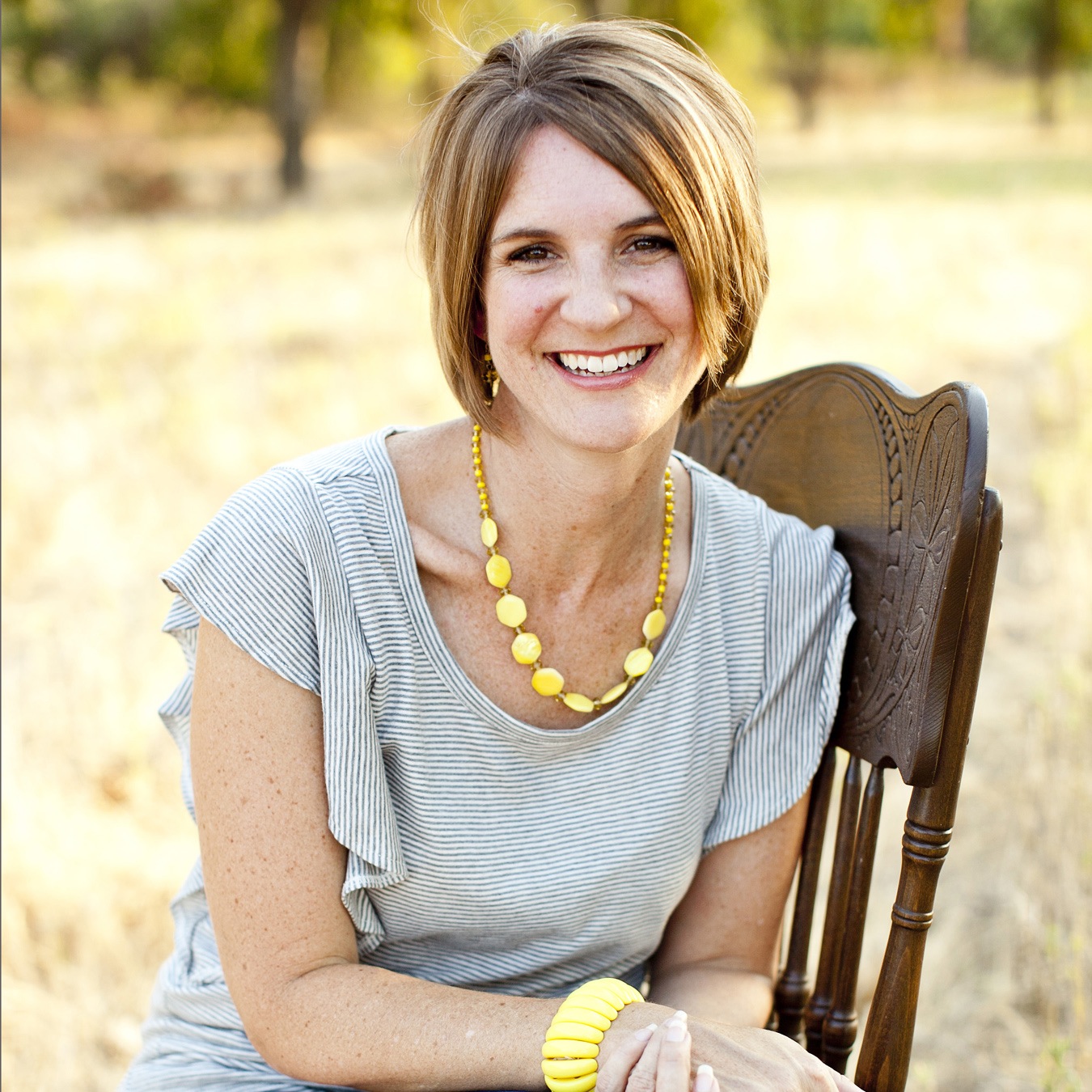
“Rather than casting all your anxieties on the Internet, which cares for no man, cast them on God, for he cares for you (1 Pet. 5:7). . . . Our comfort lies not in holding all knowledge, but in trusting the One who does.” (116)
“Because God holds all knowledge, we don’t have to. . . . How different my ability to learn what mattered would be if I were to calm and quiet my soul instead of subjecting it to a cacophony of articles that are must-reads and videos that promise to change my life at the 4:39 mark. How different my ability to perceive God would be if I traded mental hoarding, soothsaying, and meddling for a well-ordered, uncluttered mind. We have been given only so much mental capacity, and no more. Those who fear the Lord honor the limits he has placed on their minds, trusting what they do not, cannot, or should not know to the One who does, perfectly.” (118, 119)
“Will we content ourselves with cultivating the kind of beauty that cannot withstand the passage of time? Or will we cultivate the kind that points toward eternal purposes: the unfading beauty of a quiet and gentle spirit. True beauty has staying power. It doesn’t terminate on its owner, but points others toward its origin.” (130)
“The truth of God’s limitless power would be absolutely terrifying were it not paired with the truth of his limitless goodness.” (135)
“While God’s omnipotence asserts that there are no limits on his ability to act, God’s sovereignty asserts that there are no limits on his authority to act.” (140)
“God never requires submission to a harmful command.” (142)
“Being in authority means setting boundaries that preserve relationship. It does not mean setting boundaries that preclude relationship.” (147)
“Our primary problem as Christian women is not that we lack self-worth, not that we lack a sense of significance. It’s that we lack awe.” (154)
Editors’ note: Jen Wilkin will be speaking at The Gospel Coalition 2017 National Conference, April 3 to 5 in Indianapolis, Indiana. Browse the speaker list and register soon.
Previously in the “20 Quotes” series:
- Tim Keller, Making Sense of God (Viking, 2016)
- Mark Dever, Understanding the Great Commission (B&H, 2016)
- Sinclair Ferguson, The Whole Christ (Crossway, 2016)
- Albert Mohler, We Cannot Be Silent (Thomas Nelson, 2015)
- Mark Dever and Jamie Dunlop, The Compelling Community (Crossway, 2015)
- Russell Moore, Onward (B&H, 2015)
- Rosaria Butterfield, Openness Unhindered (Crown & Covenant, 2015)
- Tim Keller, Preaching (Viking, 2015)
- Tim Keller, Prayer (Dutton, 2014)
- Kevin DeYoung, Taking God at His Word (Crossway, 2014)
Download your free Christmas playlist by TGC editor Brett McCracken!
 It’s that time of year, when the world falls in love—with Christmas music! If you’re ready to immerse yourself in the sounds of the season, we’ve got a brand-new playlist for you. The Gospel Coalition’s free 2025 Christmas playlist is full of joyful, festive, and nostalgic songs to help you celebrate the sweetness of this sacred season.
It’s that time of year, when the world falls in love—with Christmas music! If you’re ready to immerse yourself in the sounds of the season, we’ve got a brand-new playlist for you. The Gospel Coalition’s free 2025 Christmas playlist is full of joyful, festive, and nostalgic songs to help you celebrate the sweetness of this sacred season.
The 75 songs on this playlist are all recordings from at least 20 years ago—most of them from further back in the 1950s and 1960s. Each song has been thoughtfully selected by TGC Arts & Culture Editor Brett McCracken to cultivate a fun but meaningful mix of vintage Christmas vibes.
To start listening to this free resource, simply click below to receive your link to the private playlist on Spotify or Apple Music.








